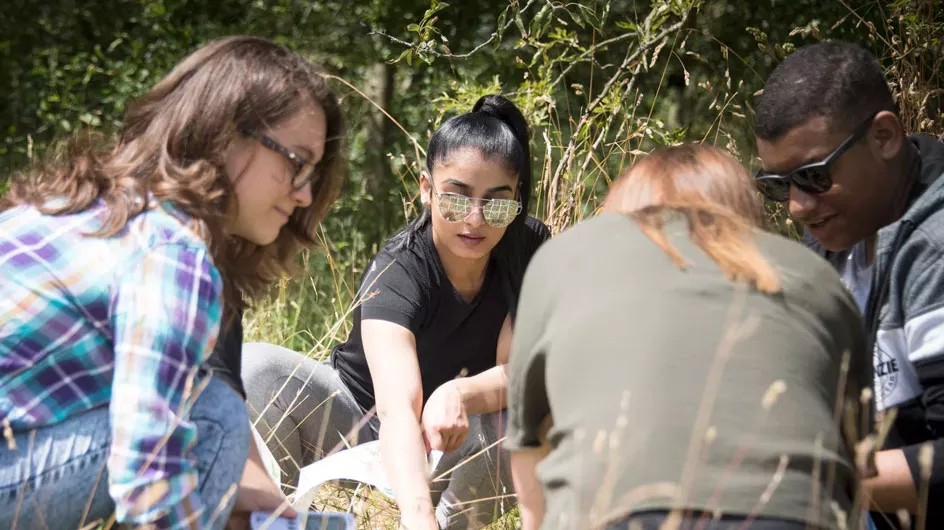KS5 Biology: Energy and recycling in ecosystems
How does energy move through an ecosystem?

Level
Duration
Allocated space
Overview
Pupils use their science and maths skills to model food chains and calculate the efficiency of energy transfer within an ecosystem.
What are the effects of fertilisers and land management on nutrient cycling and the surrounding environments? Why does this matter?
Carrying out soil investigations in contrasting areas allows pupils to apply their practical skills to real life scenarios.
Learning outcomes
Pupils will be able to:
- Describe and recognise the different trophic levels in a food web.
- Understand how to calculate the efficiency of energy transfer in a food web and describe how energy is lost and gained.
- Appreciate the importance of microorganisms in the nitrogen and carbon cycles.
- Explain key factors that affect the rate of decomposition.
We will ensure learning outcomes are relevant to your pupils and will focus on your chosen exam board.
Keywords
Energy, recycling, nutrient cycles, decomposition, food webs, producer, consumer, detritivore, trophic level, agricultural practices, mycorrhizae, nitrogen, carbon, microorganisms
Skills
a) Independent thinking
- Apply investigative approaches and methods to practical work
b) Use and apply scientific methods and practices
- Safely and correctly use a range of practical equipment and materials.
- Follow written instructions.
- Make and record observations.
- Keep appropriate records of experimental activities.
d) Instruments and equipment
- Use a wide range of experimental and practical instruments, equipment and techniques appropriate to the knowledge and understanding included in the specification.
Practical techniques
1. Use appropriate apparatus to record a range of quantitative measurements (to include mass, time, volume, temperature, length and pH).
Mathematical skills
- A.0.1 Recognise and make use of appropriate units in calculations
- A.0.3 Use ratios, fractions and percentages
- A.1.5 Understand the principles of sampling as applied to scientific data
Curriculum links
AQA - Biology
A level
3.5.3 Energy and Ecosystems
3.5.4 Nutrient Cycles
Edexcel A - Biology
A level
Topic 5: On the Wild Side 5.11
Topic 6: Immunity, Infection and Forensics 6.2
Edexcel B - Biology
A level
10.1: The nature of ecosystems i. ii. iii.
OCR A - Biology
A/AS level
6.3.1: Ecosystems (b) (c)
OCR B - Biology
A/AS level
4.3.1: Photosynthesis, food production and management of the environment h (i), i
International Baccalaureate - Biology
4.1: Species, communities and ecosystems
BTEC - Biology
Unit 17: Microbiology and microbiological techniques
A3: Microorganisms in medicine and industry
